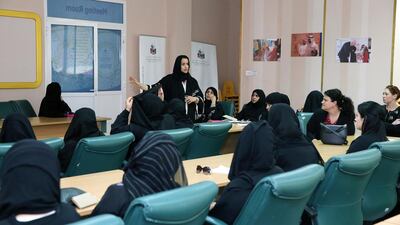Developing a moral compass in children is a responsibility that should be shared by the family, educational institutions and the community at large. Each one of them has a role to play in instilling personal and collective values and supporting the development of the individual’s ability to judge what is right and wrong and to know how to act accordingly.
Schools will start including moral education as a subject in their curriculums from the beginning of the next academic year. The lessons will focus on the promotion of ethics, personal and community growth, culture and heritage, civic education, and rights and responsibilities. As we have argued before, such a course – if implemented well – will shape our future leaders and raise moral standards across society.
This initiative, which comes under the directives of Sheikh Mohammed bin Zayed, Crown Prince of Abu Dhabi and Deputy Supreme Commander of the Armed Forces, opens up a discussion about the parallel role of parents in achieving the objective. In a majlis organised by Abu Dhabi Education Council, Dr Ali Al Nuaimi, Adec's director general, highlighted a need for a strong partnership between schools and parents to foster pupils' educational progress, especially in changing times. Today, young people confront challenges that are very different to the ones faced by their parents and grandparents.
Now, as before, the question arises: what is the most effective way to teach moral values to young students? It could be argued that parents are mostly responsible for teaching personal values to their children, focusing on how they develop a capacity for reflection and empathy, and take on responsibility for themselves and others.
In tandem with this, schools have a responsibility to foster students’ collective values, including national values such as good citizenship. Schools can help children develop their sense of national identity and make them realise the importance of the rule of law from a very young age.
It is important to remember that the moral development of young people depends on the ethical capacities of the adults who interact with them on a daily basis – especially parents, but also teachers, members of their extended family and other adults in the community. Every young person needs both a role model to inspire them and an environment that holds up good values and celebrates them.

